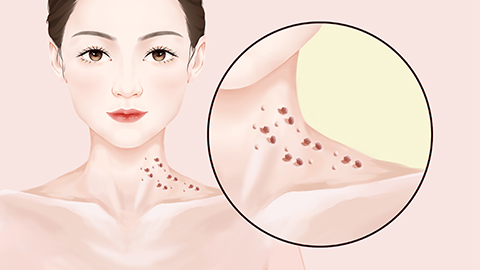What causes HPV infection in women?
Generally speaking, HPV refers to human papillomavirus. In women, human papillomavirus infection may be caused by factors such as decreased immunity, unprotected sexual activity, vaginitis, pelvic inflammatory disease, chronic cervicitis, and others. If discomfort occurs, timely medical attention is recommended. The specific analysis is as follows:

1. Decreased Immunity
When women experience excessive fatigue, long-term sleep deprivation, malnutrition, or other factors leading to reduced immunity, the body's ability to defend against viruses weakens, making it easier for the human papillomavirus to invade and cause infection. It is important to maintain a regular lifestyle, ensure 7-8 hours of sleep daily, follow a balanced diet rich in vitamins and proteins, and engage in moderate aerobic exercises such as jogging or yoga to enhance immunity.
2. Unprotected Sexual Activity
Sexual contact is the primary route of human papillomavirus infection. Engaging in unprotected sex with a partner infected with human papillomavirus can lead to transmission through genital contact. It is recommended to avoid unsafe sexual practices and develop healthy habits. Using condoms can reduce the risk of infection.
3. Vaginitis
Vaginitis is mainly caused by infections with pathogens such as Trichomonas or Candida. Inflammation can cause congestion and edema of the vaginal mucosa, compromising the vaginal defense barrier and making it easier for the human papillomavirus to penetrate the mucosal epithelial cells and cause infection. Symptoms may include vaginal itching and burning pain. Treatment may involve medications such as metronidazole suppositories, clotrimazole vaginal tablets, or Chuanbai止痒 wash剂 (anti-itch wash solution), under a doctor's guidance.
4. Pelvic Inflammatory Disease
Pelvic inflammatory disease is usually caused by the upward spread of lower genital tract infections, such as Neisseria gonorrhoeae or Chlamydia trachomatis. It may cause inflammatory responses in pelvic tissues, damaging the function and structure of organs such as the fallopian tubes and ovaries, leading to local immune dysfunction and increasing the risk of human papillomavirus infection. Symptoms may include lower abdominal pain and fever. Patients may follow medical advice to use medications such as cefixime tablets, azithromycin tablets, or metronidazole tablets for treatment.
5. Chronic Cervicitis
Chronic cervicitis is often caused by pathogen invasion following cervical injury from childbirth, abortion, or surgery. Long-term inflammation of the cervix can compromise the integrity of the cervical mucosa and impair local immune function, providing opportunities for human papillomavirus to adhere and invade. Symptoms may include increased vaginal discharge with an unpleasant odor. Patients may use medications such as amoxicillin capsules, cervical炎康 suppositories, or 抗宫炎 tablets under a doctor's recommendation.
In daily life, women should also avoid having multiple sexual partners, maintain a single and stable sexual relationship, avoid prolonged states of high mental stress, and learn to relieve stress through appropriate methods such as meditation or listening to music in order to reduce the risk of human papillomavirus infection.






